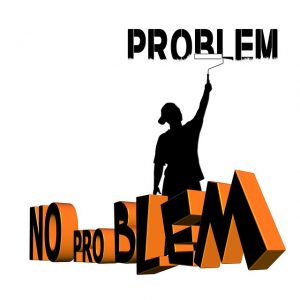
by Dave Cooper | Jun 2, 2017 | A2R, Families
Families in addiction
Over the past few years I have felt more and more moved to work with the families of addicted parents more than the addicts themselves. I am committed to getting the best information I can out there. Particularly for people who are often not well informed as to their issue. There are lots of well meaning publications out there that will tell you that it is progressive disease and other scary ideas that are not always true for your family. You need an effective way to manage this situation and to recover from it.
The effect of addiction on children
All poor and defective parenting has the same effect on the children. It encourages, causes or forces them into the adult arena. In other words they are expected to perform at an adult level even though they are still children.

The family with the issue of addiction is an extreme example of this and everyone who works in the addiction field has heard the story of the child who comes home to find their Mum passed out on the couch and then feels the pressure to ‘become the Mum’ and parent the other children and in some cases Parent the parent. I call this reverse parenting, I’m sure you get the picture, or recognise yourself in this story.
This pressure of developing an idea that you are responsible and must act in situations were you are not experienced and should not be held responsible results in trauma of various strengths.
In the personality there are two major effects or results and they are immediately recognizable. I have seen this sibling formation again and again over the years and I will now offer a definition of these two types.
The Two choices for children of families in addiction
When you are faced with the extreme circumstances of addiction in the family as a child you effectively have two choices. I will describe them in the form of ‘mission statements’ for both below.
“Everything will work out if I get everything I want”
This is the mission statement of the addict. Faced with the prospect of being recruited into a world where they must be continually thinking about the other, they ‘escape’ into utter self centredness. The technical term for this is narcissism.
They create the one place where they cannot be reached. They create a ‘world of one’. They create a place of safety. Like all unhealthy strategies this one appears to offer the perfect solution. The problems only come later as the strategy fails to produce a healthy life and healthy relationships.
“Everything will work out if everyone else gets everything they want”
This is the mission statement of the reverse addict. Faced with the prospect of being recruited into a world where they must be constantly thinking of the other, they choose to take on the task and start to identify with the role. Whereas the addict develops a fantasy life followed by drugs, alcohol or addictive behaviours, the reverse addict escapes into concern. The constant worry and pressure offer lots of opportunities to not think about their own state. This becomes habit forming and addictive.
The effect in later life
The effect of addiction on children as they grow is that they have been placed one way or another into the ‘adult arena’. This often takes the form of ‘reverse parenting’ when their parents do not fulfill their responsibilities to the children. Often in my work I meet adults who started looking after their siblings when they were only seven or eight years old.
So we now have the narcissist and the co-dependent. The addict and the reverse addict. I will go more into brain chemistry and the way these things affect choices at another time. For now I want to explain to you more of what you will see when you witness these personalities.
The addict personality has been well covered many times and so my concentration here will be the reverse addict or co-dependent. One of the biggest influences on their personality is the way ‘acting grown up’ eventually replaces ‘being grown up’. Circumstances made them responsible for things they did not have the experience or the maturity for..
The Hermeneutic of addictive relationships
In many ways this bifurcation of the two types is indicative of their future, and their future partners. The two types will ‘find’ someone from the opposite group to form a serious relationship with. In this way the addicts will partner with the reverse addicts and vice versa. And what a perfect fit!
In this type of relationship it initially feels to both parties that they have found perfection. The narcissist gets someone who seems happy to completely subjugate themselves to their cause, whilst asking for nothing in return. And the reverse addict gets someone who not only gives them a full time caring role, but always takes centre stage and never puts the spotlight back on them.
The unhealthy aspects of the addicts relationship
If only this worked long term! Everybody would be happy and no one would be in need of recovery! Unfortunately like any other unhealthy strategy it offers a quick fix but fails in the long term due to the side effects of this fit. Do not mistake a good fit for a healthy fit. There is no balance here. There is no intimacy because there is no vulnerability. Any conversation of any importance is usually had ‘under the influence’ and often leads nowhere.
Eventually the novelty wears off and both parties learn to protect themselves behind a resentful layer of self justification. Years of relentless selfishness has worn away the genuine caring of the codependent. The addict has long since learned to totally take their partner for granted. It is important to understand that these relationships are not only completely unhealthy but actually get worse over time. As a tendency in one fits with an opposite tendency in the other. These ‘tendencies’ slowly strangulate into extreme positions that cannot be maintained without serious mental health implications.
The more he behaves like a child the more she feels she has to become the parent. Or in the other formation where the addict is the female, the more irresponsible she behaves the more he feels he has to be responsible for the whole family.
There are many helpful articles on the nature of narcissism, but what can help more is an understanding of how people fit together in relationship.
The only way to authentic recovery is to outgrow your difficulties
These are serious issues and I see them again and again in my work. But they can be overcome! You can recover! It takes a commitment to growth and personal development and cannot be acheived through regular counselling sessions. You need expert and experienced support which is long term and as committed as you are.
In some cases people split up, but not always. In most cases the partner is our best teacher in that we learn best in the circumstances of the relationship. When we have the right support and guidance. We learn to use our difficulties to grow.

by Dave Cooper | Jun 2, 2017 | Families
Addiction in families – A Family Illness?
 Addiction in families is an issue as old as addiction itself and this is the first in a series of articles relating to the family. It will offer lots of practical help and things you can do to improve the family health. You could start by downloading my ebook The five big mistakes families make…. on the subject.
Addiction in families is an issue as old as addiction itself and this is the first in a series of articles relating to the family. It will offer lots of practical help and things you can do to improve the family health. You could start by downloading my ebook The five big mistakes families make…. on the subject.
As far back as 1935 Alcoholics Anonymous was calling alcoholism ‘a family illness’. Of course they were talking particularly of alcoholism. And they were largely concerned with the ‘effects’ on the family. Not so much addiction in families but how the wife (they still largely saw the problem as male) might help and best support her Husband.
Coming forward to today we can definitely say that things have changed. As a society we are now looking at the issue more from a general addiction perspective which includes behavoural addictions. Our understanding has grown to include the ‘co-dependent personality and so the family are now seen in their own right and not just unsuspecting bystanders affected by the addicted individual.
The Family is the client
As a systemic Family Therapist my approach to the issue is to see the family as the client. There are some advantages to seeing it as an illness and there are now no less than fourteen separate addiction conditions recognised by the DSMV. So it’s official, it’s a disease. In some parts of America the Jennifer act allows family members to be committed for their own safety.Clearly there are enough symptoms etc to consider it an illness but there are also some disadvantages to seeing it this way, which I would call the medical model.
The fact is that when I have contracted or am born with an illness, the tendency is to see myself as absolved from all responsibility. There are some exceptions but this approach often has people too far removed from a sense of responsibility for themselves. You will not take enough responsibility for your self if you have been schooled to think this way. Of course it is a huge ‘move on’ from the earlier approach (the moral model) which placed 100% responsibility on the addicted person. From this perspective they are simply making bad choices.

The family is a complete system
When working with families with addiction the most difficult idea they face is that there is nothing they can do. This belief often comes from the perspective described above. When you see the issue as an illness, contracted through no fault of their own, you are left in a pretty helpless position. When you see the issue as an ‘innapropriate relationship’ then there are lots of things you can do! When I work with a family I make no distinction between the family members in the sense that they are all part of the complete system.
Co-dependence
The first thing you need to know about co-dependence is that it is like a coin with addiction and codependence being the heads and the tails. Of course this is a hugely important part of the family recovery and I would encourage you to subscribe to the podcast page specific to relationships and to see my other material on the subject.
Communication – the key to growth
The first thing you should try to set up in your family when suffering with addiction issues is better communication. The most basic way that the ‘post’ issue problems (by which I men the problems that arise as a result of addiction) can confuse things is the way the addict can tell different people different things. By simply telling different family members different stories the addict maintains unhealthy boundaries and manage the whole family from behind simple untruths.
One of the first (and best) things the family can do is to set up a method of communication between the members that insures good information for all parties. Choose a method of communication. ‘whatsapp’ or facebook, texting or skype are some alternatives. The point is that anything, and I mean anything, that you hear from the addicted family member is shared with the whole family.
The addict in the family (or addicts) soon learn that talking to one member is like talking to them all. Straight forward deceit is not a big problem for every family but when it is, this is one of the biggest and simplest ways of managing it and can save the family so much heartache.
Money – Let’s face it and get honest
Most families with addiction issues have money issues. The big three (as I call them) are money sex and food. These are the three things that addicts eventually have to deal with. It can often be years after abstinence has been achieved. Money is often the first thing that comes up as it mostly involves all others, and problems with it are difficult to hide or ignore.
So what about money? Depending upon the nature of the addiction there may be no sign that money is a problem. The issues of a very successful workaholic and those of a heroin addict can present in an apparently different way. But for the purposes of this general look at the subject I will concentrate on the most typical scenario your family will face. That is an addict in the family needing money and not having any. Constantly lying manipulating and stealing from within (and without) of the family.
The communication network you set up will help with this a lot but the biggest challenge you face as a family is to yourselves. Ask yourself “what is my attitude towards money”? Do you have a belief that it is better to supply your addict with money than for them to steal it from somewhere? Remember, the challenge to yourself must be as great as the challenge to your addicted family members.
If you have a lot of trouble with boundaries around money, get together with your other family members and agree on the boundaries. When pressurised or challenged later you can stand on the idea that this is not your decision. You have set this boundary as a family.
Set your focus as a family
 When there is addiction in families they tend to focus on the addict. It is so important for your health as a family that you set your focus as something else! Individually your focus should be your own growth and development as a person. As a family your focus should be to develop harmony and intimacy. You will learn more about each other including your vulnerability and difficulty. Focusing on anything other than your addict tells you how much you have been affected by this issue.
When there is addiction in families they tend to focus on the addict. It is so important for your health as a family that you set your focus as something else! Individually your focus should be your own growth and development as a person. As a family your focus should be to develop harmony and intimacy. You will learn more about each other including your vulnerability and difficulty. Focusing on anything other than your addict tells you how much you have been affected by this issue.
Go for the long game
Try to stay away from any sense of the quick fix. If your addict seems to be listening to you do not feel that you can take advantage of this by intervening with some formulaic solutions and improvements. They are likely to be manipulating you because they want something.
This is the type of beginners mistake that counsellors not trained in addiction and recovery work tend to fall for. The general rule is ‘when you think you are manipulating them, they are probably manipulating you’.
Go more for the long game. Assess improvements over months rather than days. Have long term aims and try not to be too disappointed by small set backs (of which there will be many). Commit to growing through these things. They are not a problem to be fixed.
Till next time when I will be taking all these subjects and more in detail.
Please like subscribe and share!

by Dave Cooper | Apr 14, 2017 | A2R, Method
“The more you try to avoid suffering, the more you suffer, because smaller and more insignificant things begin to torture you, in proportion to your fear of being hurt. The one who does most to avoid suffering is, in the end, the one who suffers most.”
― Thomas Merton, The Seven Storey Mountain
The best way to view your difficulties
Learning how to use difficulties is one of the main keys to recovery from addiction. Possibly the main key! Is that a shocking thought for you? “aren’t problems things to be avoided”? How could something that feels so bad be good? How could bad or wrong thoughts help me in any way? The main reason you have continued using drugs or getting drunk is that you have believed this lie!

The problem with problems
Why do you avoid difficulties? Bad feelings or thoughts? In this respect addicts are no different from other human beings. The main difference is they do not get a choice! Your ‘addict brain’ offers you an ‘exit’ whilst there’s does not. In other words normal people mature and develop mainly because they have to. If they had an ‘EXIT’ door they would probably use it just as much as you did. I hope that makes you feel better about being an addict. You probably started this habit many years ago if you are wanting recovery from addiction. Over the years you have learned to anaesthetise yourself whenever anything that feels bad comes along. Because of this you developed a belief that anything bad is really serious, even deadly!
So I want to let you into a secret. All grown ups face difficulties every day! Yes, as part of their normal days. Not even the worst days. Difficulties, negative feelings, bad thoughts. These are all part of a normal adult day.
I now want to let you into another secret feelings will not kill you! That’s right. When I work with groups I always ask this question “what are we supposed to do with feelings”? I get some weird and wacky answers but I have never had the right answer, “feel them”. Remember, a feeling cannot make you do anything.
The raw material of growth
So if you could choose the raw material of growth, the thing you could use to build strong character and a mature grounded self image. What would you choose? I’ll bet you would choose something free and in plentiful supply. Not something expensive and rare. Well here is the good news, it is! Your difficulties are the raw material of your growth. I bet you will agree with me that you have a plentiful supply of this material!
Robert Browning Hamilton expressed this thought so wonderfully in verse:
I walked a mile with Pleasure
She chatted all the way,
But left me none the wiser
For all she had to say.
I walked a mile with Sorrow
And ne’er a word said she;
But oh, the things I learned from her
When Sorrow walked with me!
Turning difficulties on their head
“comfort and ease is good whilst suffering and hardship are to be avoided” is an idea you must learn to ditch. Because you are an addict you have accepted this and avoided most forms of discomfort.
Because I spend most of my professional life supporting addicts into recovery, I have seen the extreme version of this belief which is drug taking, heroin, crack or alcohol, gambling and pornography. The aim is always the same, to feel good without earning it. The part of your brain most affected by taking drugs is actually called
‘the reward pathway’.
So let’s get down to it. If you want to produce some form of positive change such as losing weight, getting fit, becoming an expert in sport or business, passing exams you will face discomfort. Yet you are likely still failing to see the obvious in all this.
Your greatest teacher
So I tell my clients that the greatest secret of recovery is that your weakness, failure and problems are your greatest teachers whilst your good points are almost useless to you.
“Those things that hurt, instruct”
Benjamin Franklin
How do normal people grow into mature adults? By taking the things that life throws at them (being dumped, not being chosen for the promotion, not passing their driving test). And allowing the pain of those hurts to develop strength, tolerance and stamina. A bone that is broken develops twice as strong once set and healed. You have avoided these processes by avoiding your feelings.
Once you understand this principle and get some good support around you, you will turn this whole thing on it’s head and start to use difficulties to grow instead of letting them make you shrink! As a result your progress into complete recovery is inevitable, unstoppable. I have a client who is starting to understand this at the moment, he is a Rugby player, a team player. I asked him which games he learned most from. “When we lose” he answered quickly. So I asked him why. He answered quickly “When you lose it exposes your weaknesses, you are motivated to get better”.
Learning how to use difficulties
So I want you to resolve to face these things and turn them into opportunities by making up your mind to squeeze every last drop of wisdom and learning out of them. When something hurts, ask yourself, what am I supposed to be learning from this? Since you are always telling people about how big your problems are you will have plenty of raw material to work with!
In conclusion, learn to ‘own your part in things’ using the AAA process. Also when things start to go right audit the experience and use what you learn. Your feelings are always telling you something you need to know about yourself. Therefore, share how you feel with someone you trust and accept the lesson life is teaching you. You will never regret the instruction you receive.
Please like and share this post with someone who needs to know these things

by Dave Cooper | Apr 10, 2017 | A2R, Method
Auditing – Developing your Recovery

Analysing and adding up your succeses
All counselling asks you to look at the things you have been trying not to look at. Sometimes for years! Developing you Recovery from Addiction is no different, in fact it is more intensive. This is one of the reasons you may find it difficult. But remember, there is no way to cheat! Without the commitment to analyse your mistakes and failings you cannot learn what works and what does not.
So be encouraged. You are going to learn some things when you read this that are really going to help you to develop your recovery. I call it the auditing process and in this Blog I am going to show you exactly how it works.
Preparation for the audit
Before using this method I would ask you to first study and put into practice the AAA method. It is mainly your commitment to this method that will lead you straight into the auditing process. Make your mind up and commit to the practice of consciously inserting acceptance in between awareness and action. This will prevent you from those ‘knee jerk’ reactions that come from reaching for the fastest thing that will remove a feeling. When you develop your recovery this way you will discover a new and more healthy behaviour emerges naturally. It is right here in the most difficult circumstances that you will find the process of auditing is most useful. Then you will have a familiar discomfort that normally leads you to your addiction but instead achieve a totally new outcome. The auditing process will help you to ‘anchor’ your new response to adversity firmly in place.
Analysing events by comparing the old and the new
You will probably understand this process quickest if I offer a simple example. This is very typical of the way I have shown countless people this process.
A client I am working with tells me as part of our session that he has found himself in a circumstance that he has been in many times. He describes anger, or sometimes fear. The exact situation is not so important. the important part is that he has had a new outcome! For years he has been drinking or drugging or gambling when he has been caught in this state or circumstance. But not this time! His new found method has saved another binge and we are talking it through. It is at this time I suggest the ‘audit’.
“What is the worst this has ever got when this has happened to you in the past”? I ask this question to establish the disaster of past strategies and it is important that we are clear about this. Often the client will describe real disasters such as weeks in Hospital or prison. We are now getting the first part of the audit. It is important that this answer must be real. It must be the worst consequence coming from the old way of handling this difficulty. I ask the client to hold this ‘story’ in his left hand.
“How hard was it to accept the feelings you had today”? Or sometimes I ask “How difficult was it to ring me today and tell me about this”? The client will often describe acute difficulty such as embarrassment or shame. I then ask the client to place this experience in his right hand.
I then ask the client to compare these experiences by ‘weighing them up’ in his hands. Inevitably the thing that has happened in the past is far worse. Acceptance of the feeling is often an acute but usually short felt discomfort.
Shout out every moment of success!
Accepting the reality of a difficult moment is a real break through in developing your recovery. And like every other small step forward it must be celebrated! I know this will feel strange at first but really go over the top when you discover any thing you did well. It is all part of ‘retraining your brain’ towards growth and a better self image. I ask my clients to regularly make a list of twelve things they have done well that day and to go on and tell themselves how well they did! Speaking this out loud is best, even facing your self in a mirror if you can manage it!
Completing the Audit
It is at this point that I remind the client that he has just saved himself everything in his left hand by being willing to do what is in his right hand. The comparison is often staggering and is all it takes to convince and encourage the client to continue this new adventure we call recovery. Once learned this can be practised every day as a reminder and an incentive to continue to commit to personal growth and development. If you practice this you will soon discovery what all my clients have found for themselves. that feelings cannot kill you. That feelings cannot make you do anything. That feelings are there to be felt. That feelings can be used to develop your recovery.
Thanks for taking the time to read this – If you subscribe below you will receive regular updates.

by Dave Cooper | Apr 7, 2017 | A2R, Method
“Finally I am coming to the conclusion that my highest ambition is to be what I already am. That I will never fulfill my obligation to surpass myself unless I first accept myself, and if I accept myself fully in the right way, I will already have surpassed myself.”
― Thomas Merton
 Say AAA!
Say AAA!
Do you get into trouble through your ‘reactions’ based on how you feel? Are you forever trying to sort out the mess that you cause when you act without thinking it through? Do you recognise this in your self? Do you wish you could change your behaviour patterns?
This AAA method is an effective and simple process that you can quickly learn and use. I developed it when working intensively with residential clients in addiction treatment. They all struggled with ‘knee jerk reactions’. I saw this a lot when working with groups.
If you suffer with this you have trained your self to act quickly to ‘change how you feel’. You have developed a belief that you ‘must not feel discomfort’. Or that something really bad will happen if you have a bad thought or feeling. So follow these simple steps and you will learn to change behaviour for the better.
Missing out a vital step
When you go straight from awareness to action you miss out a vital step. That step is acceptance! When you use drugs and alcohol for years as a ‘growth substitute’ you do not develop mature reflective skills that help you deal with discomfort, disappointment and uncertainty. You will be vulnerable to childish and child like reactive behaviour. if you are an addict this can be very costly. The triple A method will support you in developing a further element, that of acceptance. I think of these elements in the following way
|
Awareness
|
Acceptance |
Action |
| Psychological – Emotional |
Spiritual |
Practical – behavioural
|
Understanding the realms
The chart above maps out the realms. Awareness is about how we feel and what we are thinking and so belongs in the psychological/emotional realm. Action is about what we do and so belongs in the practical/behavioural realm. Acceptance is the vital step that separates these other two and belongs in the spiritual realm.
Defining Acceptance
When I suggest a middle step of acceptance be careful to define acceptance properly for your self. Society has developed a way of thinking about this word that has diminished it somewhat.It is now linked with ‘becoming a doormat’. Acceptance has become a word that has come to mean something you can’t do anything about. Agreeing with, putting up with, doing nothing about it and believing something will last forever.
I don’t know when this happened but I want you to use the proper definition. Here we are defining acceptance as realising at as deep a level that you can manage that something is ‘real’.
Acceptance is not an alternative to action
Do not use acceptance as an alternative to action (The serenity prayer has a lot to answer for here). And definitely not to become a ‘door mat’. Accepting something does not mean agreeing with it, that it’s correct or that it will never change. You are simply saying that just for this moment it’s true! It’s real!
If we are angry we are angry, if we are sad we are sad! This may seem obvious but you will not work with changing behaviour long before you start to realise the extent of the difficulties you face when you jump straight from an awareness of sadness/anger/rejection to an action/behaviour designed to remove it immediately!
Do not make the mistake of thinking of awareness as unimportant. Often raising awareness is all that is needed to kick start the process of growth.
Reactions and Responses
You now need to understand the difference between a reaction and a response. A reaction is the inevitable consequence of learning, beliefs and attitudes. They arise from the unconscious and are lightning fast. Much too fast to control! Your responses are conscious, considered and reflective and come more from a moral sense of who you want to be.
We cannot stop reactions! We all have them. When you have a reaction your practice is to turn it into a response as quickly as you can. You do this by continually ‘checking out’ what you are thinking and feeling (especially when you get any sense that something is wrong). Then accept whatever you have become aware of. I tell my clients that there is no such thing as an ‘unacceptable thought or feeling’. This acceptance will naturally lead to changing behaviour. You don’t even need to tell your self what to do next! Better behaviour comes naturally!
By inserting this middle step of acceptance you can shift from a reaction to a response as soon as possible . When we take our psychological and emotional realities into the spiritual realm we give ourselves a chance to produce something much more useful.
Changing Behaviour
I have found it useful to explain it from back to front like this;
‘Effective action’ is what you want, this is produced when you are in line with reality (acceptance) but we can only accept what we are aware of. So the practice of changing behaviour starts when you raise awareness around your thoughts and feelings. Then practice acceptance in the true sense of the word. Finally try to allow the behaviour to emerge naturally from the level of acceptance.
I suggest you develop  the following practice;
the following practice;
1 When you are feeling something is wrong check out what you are feeling/thinking.
2 Accept at the deepest level you can that whatever you have become aware of is ‘real’ .
3 Follow the course of action that emerges from this acceptance.

by Dave Cooper | Mar 24, 2017 | A2R, Method

Dave Cooper
Let me describe you
You are successful, financially in business or music or media. You are doing well in most areas except that you use alcohol and cocaine and it’s getting the better of you. You are money rich and time poor so you do not have three or six months to give to a residential rehab program. But you do know that you need something, you know that things need to change in your life. So what do you want from an addiction treatment program?
Or maybe you have a loved one who needs help? Do you want them to go to a rehab to learn ‘how to be a better addict’. Do you want them spending time around ‘bad influences’. If you are in the public eye and don’t want any publicity around your difficulties you will need absolute discretion which you are unlikely to get in a residential setting.
I haven’t got time to go to Rehab!
Everything above speaks about why you don’t want a long stay in a residential rehab. But what if I offered you a treatment package that doesn’t ask for you to be away from your family or your business for three months (or longer)? What if I offered you a treatment package that is so discreet that your business colleagues would not even know you were in treatment? What if I told you that this approach is more effective and has better success rates than residential programs?
My approach has been developed over many years and benefits from my experience of working in all the varied treatment methods. Here are a few things I have discovered.
-
That gains you make in your ‘real life’ are more substantial and produce more change.
-
That by dealing with today’s issues today you get the best way to understand what’s really going on with you.
-
That you will develop new skills and learning on-site in your real life.
-
That the ‘difficulties’ you face are often the best teachers you have in your life.
-
That for most people residential treatment is not needed.
You can’t do any of these things in a long stay residential rehab. Residential programs offer you ‘theoretical’ recovery. Not only is it not your ‘real life’, but the whole idea is to remove you from your real life. You can’t deal with your days issues because you are being protected from them by being in the rehab. You can’t develop these new skills in rehab, they must remain theoretical until you return home. The real question I want you to ask yourself is “Is there a good reason for me being here”? There are, of course some good reasons for choosing an addiction treatment program that involves residential treatment. One of the main reasons is that the home, work or social environment is too difficult or is overwhelming in some way. I doubt if this is the case for you.
An Addiction Treatment Program that works!
My approach is an ‘alternative to rehab’ and offers a comprehensive and proven effective method. Don’t give up months of your life being somewhere that you do not need to be! I will support you at home, at work and at play! No one even needs to know that you are in treatment!
For more details ring me on 07764996223 and I will be happy to answer your questions.
Thanks for taking the time to read this




 Addiction in families is an issue as old as addiction itself and this is the first in a series of articles relating to the family. It will offer lots of practical help and things you can do to improve the family health. You could start by downloading my ebook
Addiction in families is an issue as old as addiction itself and this is the first in a series of articles relating to the family. It will offer lots of practical help and things you can do to improve the family health. You could start by downloading my ebook 
 When there is addiction in families they tend to focus on the addict. It is so important for your health as a family that you set your focus as something else! Individually your focus should be your own growth and development as a person. As a family your focus should be to develop harmony and intimacy. You will learn more about each other including your vulnerability and difficulty. Focusing on anything other than your addict tells you how much you have been affected by this issue.
When there is addiction in families they tend to focus on the addict. It is so important for your health as a family that you set your focus as something else! Individually your focus should be your own growth and development as a person. As a family your focus should be to develop harmony and intimacy. You will learn more about each other including your vulnerability and difficulty. Focusing on anything other than your addict tells you how much you have been affected by this issue.



 Say AAA!
Say AAA!
